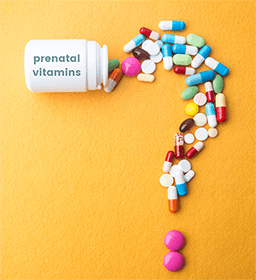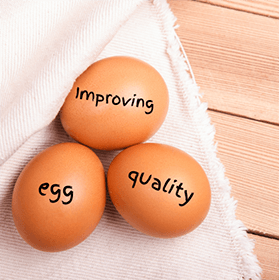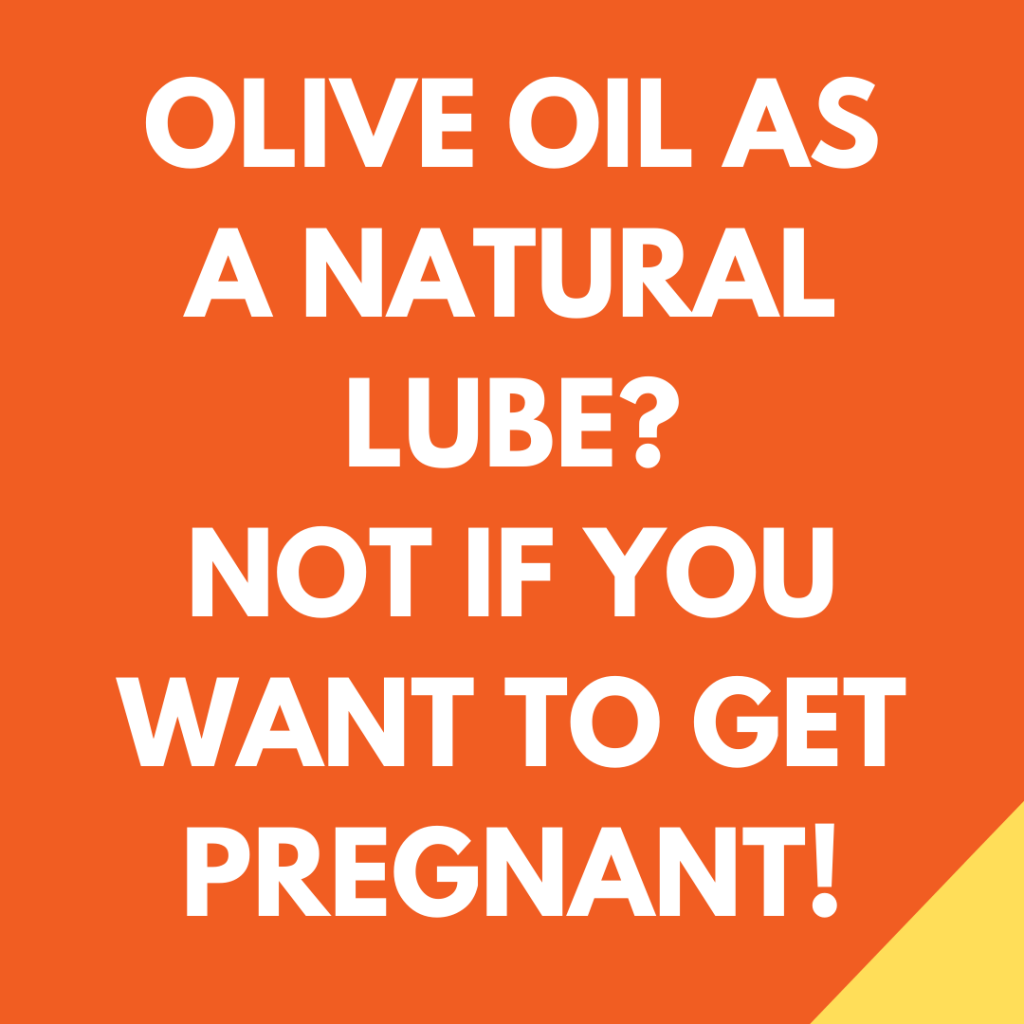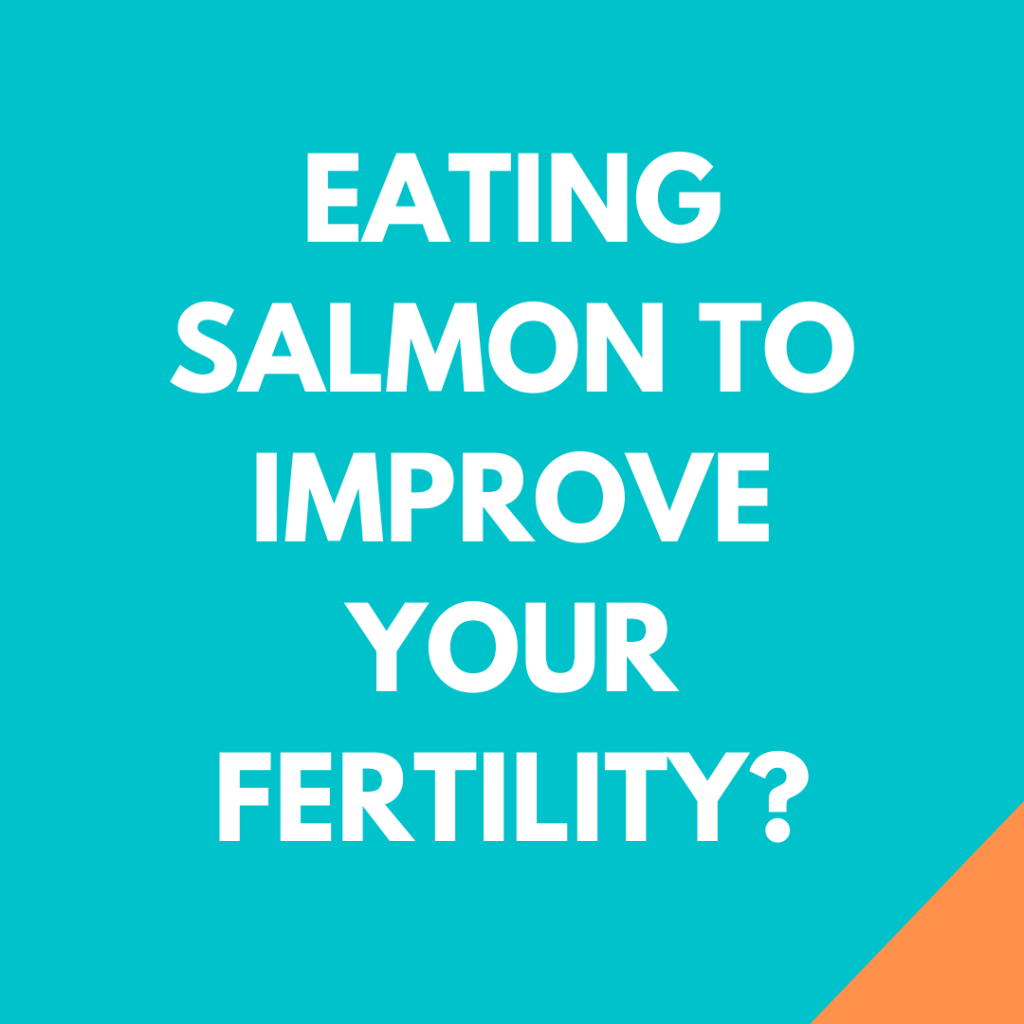We may earn a commission from affiliate links on this page.
Okay guys, I tried to keep it short so that I could give you a quick answer on whether prenatals can help you get pregnant faster… but it turned into this article that covers pretty much all you need to know about prenatals when you’re planning to have a baby!
This is a MUST read if you’re trying to get pregnant as it covers everything from the different ingredients, to when you should start taking them, their benefits, and which brands are best.
And, as always here on Storkacademy… you get my unfiltered, scientific opinion. Because I may be a scientist, but I’m also just a 30-something year old who actively remembers how stressful it was to frantically compare brands and ingredients, trying to decide if that $50 bottle of prenatals would be significantly better than the $3 version I have sitting in my kitchen cabinet.
If you’re trying to conceive (TTC) you’re probably aware that prenatal vitamins are crucial in protecting the health of your baby. But hey, you’re not pregnant yet. So there’s no baby to protect yet, right?
Well, prenatal vitamins do a lot more than just protect your baby. Prenatal vitamins are crucial for your fertility too!
Is it Safe to Take a Prenatal When You’re Not Pregnant Yet?
The very first thing you might ask yourself when you’re planning to have a baby is: what can I do to make sure that me and my future bubs are as healthy as possible?
While this article lists all the benefits of taking a prenatal when you’re not pregnant yet, you also need to know if it’s even safe to do so. After all, prenatals are mostly developed for women who are already pregnant.
Well, the CDC recommends that all women of reproductive age take 400 micrograms of folic acid each day, not just women who are already pregnant!
Also, the Mayo clinic states that “it’s generally a good idea for women of reproductive age to regularly take a prenatal vitamin.”
The American College of Obstetricians and Gynecologists also thinks starting early with prenatals is a great idea. They recommend taking a prenatal vitamin at least 1 month before becoming pregnant, but since you can’t predict what’s going to happen in the future, it’s a good bet to start when (or even right before) you start trying for a baby. Besides, you want to start early as I’ll show you what the science says about how a good prenatal vitamin can actually improve your chances of becoming pregnant faster!
Price: $26.50 ($0.11 / Count)
21 used & new available from $26.50 ($0.11 / Count)
Prenatals vs. Multivitamins
Prenatals differ from regular multivitamins in a couple of different ways. Most notably it contains folate which is incredibly important for fetal brain development. 
Another way prenatals differ from regular multivitamins is by having a higher iron content. That’s because iron is crucial during pregnancy due to an increased demand. But if you’re not pregnant yet, which I bet is the case since you’re reading this, too much iron can cause a bit of discomfort in some women (constipation or nausea). As you’ll see later on in this article, one way to avoid this issue is by sticking to gummy prenatals as they don’t contain iron (always check the label!). And of course, you probably won’t be planning on taking these pills forever either, since the goal is to get pregnant ASAP!
So if you’ve been trying for a few months or even years and you haven’t gotten pregnant yet, ask your doctor about prenatals. Even though it’s quite common to take a prenatal multivitamin when trying to conceive, it’s good to ask just to get the all-clear.
Prenatals: Boosting Your Chances of Getting Pregnant
Okay, so you’re ready to have a baby and want to know how to get pregnant ASAP.
Besides using ovulation predictor kits and making sure you know when your fertile window is, what else can you do to get there faster?
Well, that’s where prenatals come in!
Perhaps the first study to seriously look into fertility and the use of prenatal vitamins is a large Hungarian study from 1996.1 Almost 8,000 women participated in this study and results are definitely promising: women who took prenatal multivitamins had higher odds of conceiving and do so faster.
The researchers show that women who were trying to get pregnant and were given a multivitamin with 800 micrograms of folic acid managed to conceive 71.3% of the time. And those 71.3% got pregnant at some point within 14 months.
In the same study, another group of women did not receive a prenatal multivitamin. Instead, they were given a placebo-like trace element supplement containing only copper, manganese, zinc and vitamin C, but no folic acid and no other vitamins. In this group, 67.9% got pregnant.
The difference between 71.3% and 67.9% may not seem like much, but this study recruited any and all women who were trying to conceive. That means that in the general population, in other words the vast majority of these couples did not have problems conceiving, adding a prenatal vitamin can boost fertility. But if the bump in fertility happens mostly in women who have trouble conceiving, which isn’t all that unlikely, then those 3.5% sound pretty amazing!
We know that 1 in 8 couples struggle to conceive, that’s 12.5%! If you’ve been trying to get pregnant and haven’t had any luck so far, taking a prenatal could be really important. So let’s take a look at the evidence of taking prenatal vitamins among women with fertility problems.
Prenatals: Slicing the Risk of Anovulation in Half
Infertility due to anovulation (not ovulating) is one of the biggest reasons for not getting pregnant. It’s probably one of the first things your doctor will investigate when you go to your “WTF, why am I not pregnant yet”-appointment after a year of trying.
Because when you’re not ovulating, you can’t get pregnant. It’s as simple as that. So making sure you ovulate is *crucial* when you want to have a baby.
Have you ever heard of the Nurses Health Study? It’s an enormous Harvard study where nurses were followed for many years. Researchers looked at many things in this study, including fertility.
Researchers found that women who took a prenatal every day had a 41% lower risk of “anovulation”, a.k.a. not ovulating.2 That’s close to 50%! In other words, taking a multivitamin seems to severely reduce the risk of having menstrual cycle problems. And when your cycle is nice and steady, the odds of conceiving are higher too.
In another recent study from Denmark,3 women who were trying to get pregnant were asked if they took a prenatal vitamin. Turns out that for each cycle of trying to get pregnant, women taking a prenatal had about a 15% higher chance of getting pregnant.
That’s quite a nice boost for just 1 simple pill! And guess what; women with irregular, long, or short cycles by far benefited the most!
Prenatals: Doubling Pregnancy Rates in Women with PCOS
What about women with known fertility issues? PCOS (Polycystic Ovary Syndrome) is a common disorder that affects about 1 in 10 women. It often goes undiagnosed until you’re at that “WTF, why am I not pregnant yet”-visit at your doctor’s.
Do prenatals work for women with PCOS as well? We saw that it benefited women with irregular cycles a lot, and as that’s often one of the key signs of PCOS, it wouldn’t be a big surprise to find out it helps PCOS ladies too.
And that’s exactly what a study from the United Kingdom found.4 Most of the enrolled women had subfertility due to ovulation issues, often because of PCOS. And because of the ovulation issues, the doctors had to induce ovulation using the popular ovulation-inducing-drug Clomid (Clomiphene citrate).
Price: $41.98 ($0.47 / Count)
1 used & new available from $41.98 ($0.47 / Count)
After 3 months, women who took a prenatal got pregnant much faster and more often (66.6%) than women who only took folic acid (39.3%)! So yes… two thirds of these women got pregnant in just 3 months (!) after being on Clomid and taking a prenatal, compared to just a little over 1 out of 3 who took *only* folic acid. While folic acid is one of the most important ingredient in your prenatal, it’s probably best to stick to actual prenatals (which include folic acid) rather than buying a supplement that only contains folic acid.
That’s a pretty big difference! It goes to show that while there are meds your doctor prescribes that can help you ovulate, your body may still need a little extra help. And that’s where these simple over the counter vitamins can come in handy.
Prenatals: Improving Egg Quality
You’re born with all the eggs that you’ll ever have. But that doesn’t mean that all your eggs are of perfect quality. Egg quality decreases as we age. It’s just a fact of life. But luckily, research has shown that we can help those little eggies along a bit. Help them develop into the best versions of themselves.
So how do prenatals help improve your egg quality?
Well, a research study showed that women undergoing infertility treatments tended to have lower levels of micronutrients and antioxidants. We’re talking about lower levels of antioxidants, vitamins, and trace elements such as zinc, selenium, Vitamins B2, B6, C, E, and folate.5,6,7
That doesn’t sound very good, right? Luckily there’s some good news. If you’re undergoing IVF and you’ve been wondering if you should ditch your (prenatal) vitamins… not so fast!
Researchers found that a multivitamin can help restore these micronutrient levels in women undergoing IVF.7
And not just that, but research tells us that supplementation with a multivitamin can have a positive influence on both egg quality and embryo quality.7,8 In other words, eggs that fertilize and develop into embryos are of higher quality.
This brings me to the next part, can prenatal vitamins help you stay pregnant?
Prenatals: Decreasing Miscarriage Rates and Other Benefits
Let’s talk about the risk of miscarriage. Because unfortunately, 1 in 4 pregnancies end in a loss. Many happen in those early weeks when some don’t even realize they’re pregnant yet.
And it’s these early days that are perhaps the most crucial. Well, not only do prenatals have a great safety record, they have actually been shown to significantly decrease the risk of both miscarriage as well as stillbirth.
A recent study from Michigan and Texas found that a really important thing you can do to avoid a pregnancy loss is taking a multivitamin before even getting pregnant. In fact, this cut the risk of miscarriage in half!9
And other studies agree too. Take for example this one enormous study from 2016 looking at 40 separate trials involving almost 300,000 women. Yes 300,000 women! They found that the risk of both stillbirth and miscarriage is lower in women taking prenatal multivitamins.10
There are other benefits too. Another study found that multivitamin use during pregnancy is very much recommended because it substantially lowers the risk of many birth defects, mostly thanks to folate. That includes a lower risk of having a baby with low birth weight, neural tube defects, urine tract defects, heart defects, and the risk of limb defects is much lower too. There’s even a lower risk of autism!11
Picking the Best One: Folic Acid or Methylfolate?
Needless to say, a prenatal multivitamin is an awesome way of lowering the risk of miscarriage and making sure that when you do become pregnant, your developing little peanut remains healthy.
But there are many different kinds. Which one is best? What ingredients should a prenatal contain?
Prenatal vitamins contain essential minerals such as iron and magnesium, and antioxidants such as vitamin B12, vitamin C and D and riboflavin. All of these are really important to help your body and reproductive system stay in balance and protect the growing egg and embryo.
But perhaps the most important ingredient in a prenatal multivitamin is folate. Most prenatals contain the synthetic form of folate called folic acid. Some others contain methylfolate (a.k.a. L-methylfolate or Levomefolic acid), which is a more natural form of folic acid.
But does natural equal better? Most research has been conducted on the synthetic form (folic acid) and we know just how safe it is and how it can protect your future baby from a whole bunch of problems in development.
The difference between the two is that folic acid requires an extra step by an enzyme in your body to convert it to methylfolate, whereas methylfolate is, well, methylfolate already! If you have a gene mutation called MTHFR then your body isn’t as good at doing this folic acid to methylfolate conversion by itself. Hispanic populations are most likely to have this gene variant at about 25% of women.12
Price: $28.72 ($0.24 / Count)
9 used & new available from $28.72 ($0.24 / Count)
If you know you have the gene mutation and you’ve been taking folic acid, I want you to know this: it’s not that your body can’t convert folic acid into methylfolate by itself, it simply means that your body is less efficient at doing so! Let me repeat that: Even if you have the wrong gene variant, you. are. not. doomed!
But you do want to make sure that you take your pill every day. The main benefit of taking a prenatal with methylfolate (instead of folic acid) is that it circumvents the issue caused by the gene mutation. On the other hand, the main benefit of taking a prenatal with folic acid (instead of methylfolate) is that it has been studied extensively and many studies have shown its safety and effectiveness, even in women with the gene mutation.
There are many choices, but these are my favorite prenatals with either folic acid or with methylfolate.
Picking the Best Prenatal Vitamins: Gummies or Pills
What’s the difference between prenatal gummies and pills? Besides one being a treat to eat and the other being… well… a pill?
As I already alluded to, gummy vitamins don’t contain iron. That’s mostly because iron tastes terrible, you probably don’t want to be chewing on that (or I should say: no manufacturer wants to sell you these because you’ll never buy them again)!
The good thing is that because of this they won’t upset your stomach and you probably don’t need it anyway at this stage. But once you do become pregnant you should definitely switch to a prenatal with iron.
Gummy prenatals also don’t contain riboflavin (Vitamin B2) and thiamine (Vitamin B1), whereas pill prenatals do. Although, it’s hard to say how much of a difference not having these two antioxidants makes.
There also tends to be less zinc and no calcium in gummies.
On the plus side, they do contain the extremely important folic acid or methylfolate and a whole slew of other ingredients such as Vitamin B12, B6, K, beta-carotene, and sometimes even DHA/Omega-3.
And finally, they just can’t seem to pack in the vitamins as tightly in gummies as they can with pills because most gummies require you to take two or even four each day. Also, they tend to be a lot more expensive than pills!
But even though gummies lack some ingredients, they can still be a good choice if you’re trying to conceive. That’s because your body only really starts needing that iron once you become pregnant, and gummies taste a lot better and don’t contain any iron (yay to no constipation and nausea!).
On the other hand, even though regular prenatals can be a bitter pill to swallow (see what I did there?), they do contain a wider spectrum of minerals and antioxidants. As always, it’s a good idea to ask your doctor if you’re unsure.
References
1. Czeizel, A.E., Métneki, J., & Dudás, I. (1996). The effect of preconceptional multivitamin supplementation on fertility. International Journal for Vitamin and Nutrition Research, 66(1), 55–58.
2. Chavarro, J.E., Rich-Edwards, J.W., Rosner, B.A., et al. (2008). Use of multivitamins, intake of B vitamins, and risk of ovulatory infertility. Fertility and Sterility, 89(3), 668–676.
3. Cueto, H., Riis, A., Hatch, E. et al. (2016) Folic acid supplementation and fecundability: a Danish prospective cohort study. European Journal of Clinical Nutrition, 70, 66–71.
4. Agrawal, R., Burt, E., Gallagher, A.M. et al. (2012). Prospective randomized trial of multiple micronutrients in subfertile women undergoing ovulation induction: a pilot study. Reproductive Biomedicine Online, 24(1), 54-60.
5. Vecchia la, I., Paffoni, A., Castiglioni, M. et al. (2016). Folate, homocysteine and selected vitamins and minerals status in infertile women. Contraception & Reproductive Health Care, 22, 70-75.
6. Özkaya, M.O., Nazıroğlu, M., Barak, C. et al. (2011). Effects of Multivitamin/Mineral Supplementation on Trace Element Levels in Serum and Follicular Fluid of Women Undergoing in Vitro Fertilization (IVF). Biological Trace Element Research, 139, 1-9.
7. Schaefer, E., Nock, D. (2019). The Impact of Preconceptional Multiple-Micronutrient Supplementation on Female Fertility. Clinical Medicine Insights: Women’s Health, eCollection Vol 12.
8. Ingle, M.E., Bloom, M.S., Parsons, P.J. et al. (2017). Associations between IVF outcomes and essential trace elements measured in follicular fluid and urine: a pilot study. Journal of Assisted Reproduction Genetics, 34, 253–261.
9. Louis, G.M.B., Buck Louis, G. M., Sapra, et al. (2016). Lifestyle and pregnancy loss in a contemporary cohort of women recruited before conception: The LIFE Study. Fertility and Sterility, 106(1), 180–188.
10. Balogun, O.O., da Silva Lopes, K., Ota, E., et al. (2016). Vitamin supplementation for preventing miscarriage. Cochrane Database of Systematic Reviews, 5, CD004073.
11. Surén, P., Roth, C., Bresnahan, M. (2013). Association Between Maternal Use of Folic Acid Supplements and Risk of Autism Spectrum Disorders in Children. JAMA, 20(6), 570-577. 12. Wilcken, B., Bamforth, F., Li, Z., et al. (2003). Geographical and ethnic variation of the 677C>T allele of 5,10 methylenetetrahydrofolate reductase (MTHFR): findings from over 7000 newborns from 16 areas world wide. Journal of Medical Genetics, 40(8), 619–625.









Comments are closed.